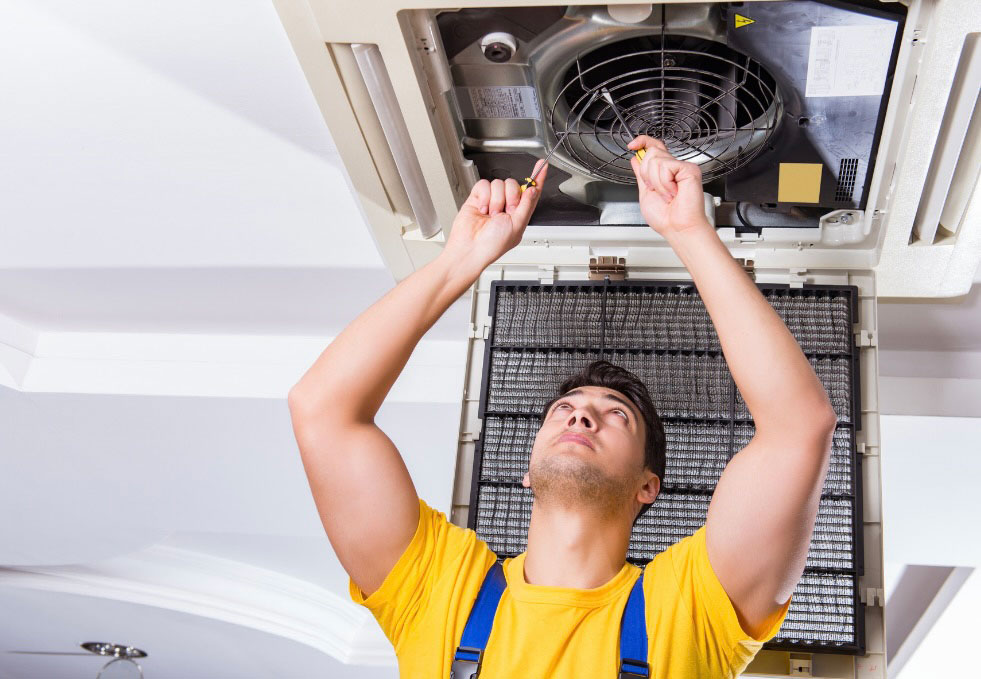
In today’s modern world, commercial buildings have become the epitome of progress and innovation. These structures, be it office complexes, shopping malls, or hospitals, require efficient and reliable systems to create a comfortable environment for occupants. Among the various options available, Heating, Ventilation, and Air Conditioning (HVAC) systems have emerged as the preferred choice. Below are a few reasons behind the popularity of HVAC systems in commercial buildings and the benefits they offer.
Enhanced Comfort:
Commercial buildings are often bustling with activity, accommodating a large number of people. To ensure the well-being and productivity of occupants, maintaining a comfortable indoor climate is crucial. HVAC systems provide precise temperature control, allowing the building management to tailor the environment to suit the preferences of the occupants. Whether it’s cooling the building amidst scorching summers or providing warmth during cold winters, HVAC systems ensure a comfortable atmosphere throughout the year.
Improved Air Quality:
Indoor air quality is a vital aspect of any commercial building. HVAC systems incorporate ventilation mechanisms that circulate fresh air while simultaneously filtering out contaminants and pollutants. This process helps to remove airborne particles, allergens, and odors, resulting in a healthier environment for employees, customers, and visitors. By reducing the risk of respiratory issues and allergies, HVAC systems actively contribute to a productive and pleasant experience within the building.
Energy Efficiency:
Efficient energy utilization is a primary concern in commercial buildings due to the large scale of operations and the associated costs. HVAC systems have made significant advancements in recent years, becoming more energy-efficient than ever before. Features such as programmable thermostats, zoned temperature control, and variable-speed motors allow for precise regulation of energy consumption. By optimizing energy usage, HVAC systems help to reduce utility bills and minimize the building’s carbon footprint.
Flexibility and Zoning:
In managing commercial buildings, the ability to adapt to varying temperature needs in different zones is essential. HVAC systems excel in this aspect, offering zoning capabilities that allow different areas of the building to be heated or cooled independently. This feature is particularly beneficial in large office spaces, retail outlets, or healthcare facilities where different areas may have distinct temperature requirements. Zoning not only enhances comfort but also optimizes energy usage by directing conditioned air only where it is needed.
Maintenance and Control:
Commercial buildings demand systems that are easy to maintain and control. HVAC systems are designed with user-friendly interfaces that enable building managers to efficiently monitor and adjust settings. Regular maintenance ensures the longevity and reliability of these systems, reducing the likelihood of unexpected breakdowns. Moreover, technological improvements have enabled the integration of smart controls and automation, providing building operators with the convenience of remote monitoring and control over HVAC systems.
With ongoing advancements, HVAC systems remain the preferred option for commercial buildings, fostering business growth and success. Our team at Beyer Mechanical has skilled technicians that are committed to optimizing operations in commercial spaces along the I-35 corridor, including New Braunfels, Austin, Pleasanton, and Corpus. Contact our experts today for top-notch HVAC services and transform your workplace into a comfortable haven.
